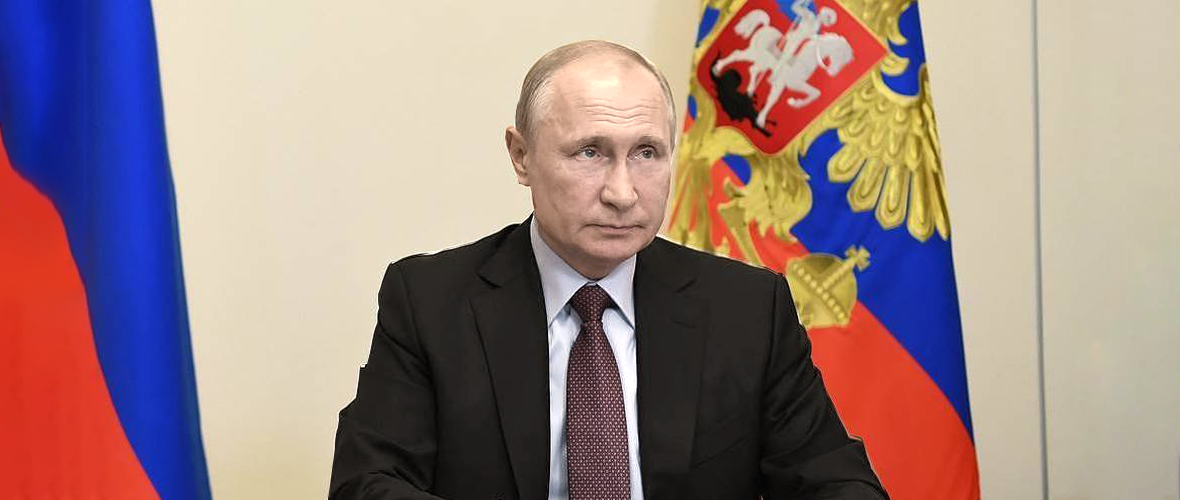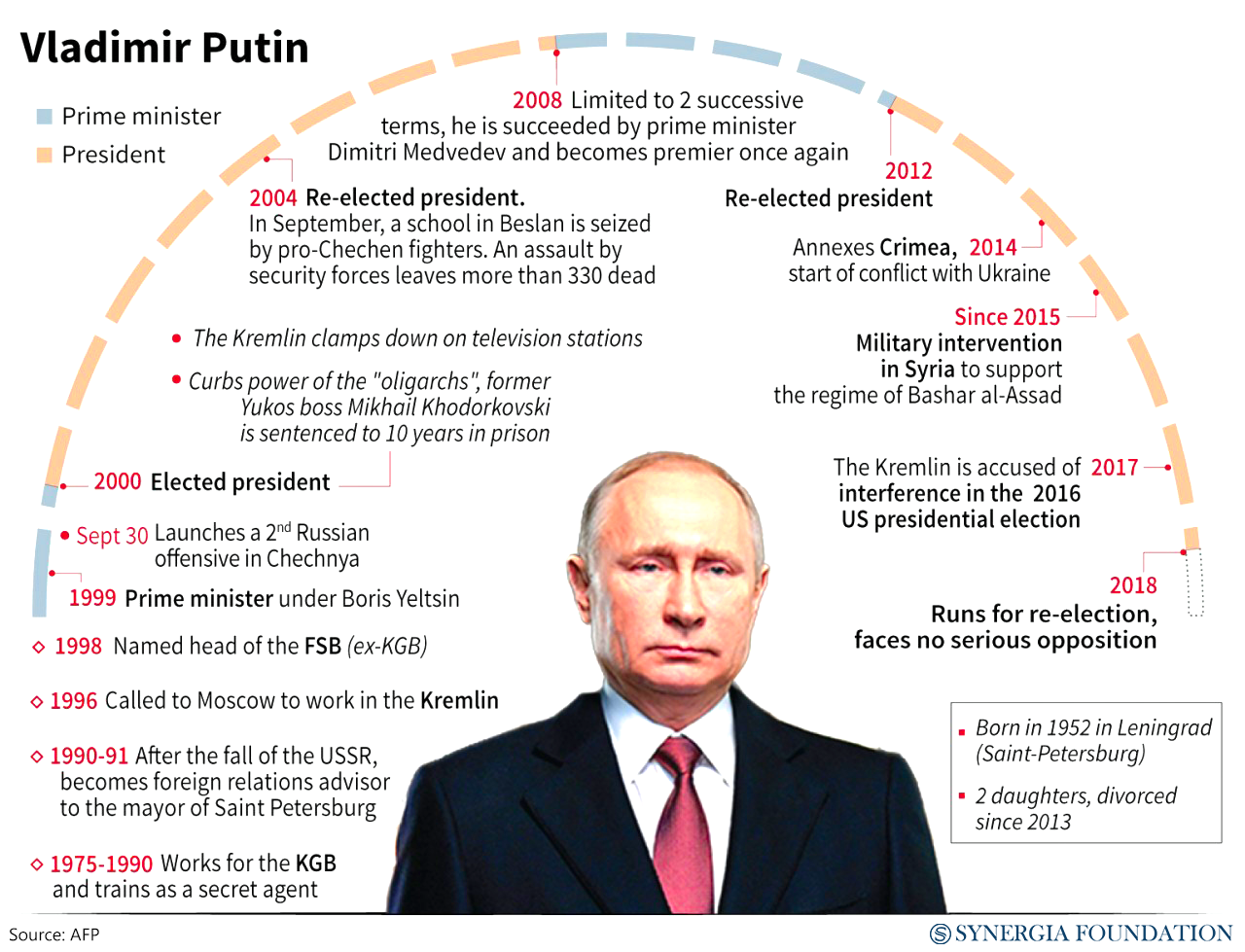The Legacy of Putin
December 4, 2021 | Expert Insights

In more than two decades of Putin’s presidency, Russian politics, society, and culture have undergone a complete overhaul. Yet, the ruling establishment maintains a dominant position in international relations as well as domestic politics.
Background
As a successor to the sudden departure of Yeltsin, Putin has successfully transformed Russia’s image as a ‘chaotic’ country. Two decades of commanding leadership have given earned him strong supporters among the elderly, but protests and demonstrations by the young are indicative of unrest and dissatisfaction with the ruling elite. Putin’s near autocratic style of ruling with an ‘iron hand’ has led to Russia now experiencing near-isolation in the international sphere and political insurgence in the domestic arena.

Analysis
At 68, Putin has already been in power for more than two decades, and a controversial constitutional reform has given him the opportunity to stay on in power beyond his current fourth term, which ends in 2024. He could technically remain at the helm of affairs until 2036, making him one of the longest-serving leaders in modern times! Putin has been unequivocal in his determination to reassert Russian authority after years of perceived humiliation by the U.S. and its allies.
Russia has maintained an aggressive stance internationally under Putin. His swift military interventions in both Ukraine and Syria drew international attention. Annexing Crimea in 2014 and bombing anti-government rebels in a move that strengthened Syrian government forces has also been viewed critically. Relations with the West have become even more estranged after a steady build-up of Russian troops around Ukraine since 2014. Since then, the EU and U.S. have expanded sanctions on key Russian officials and firms over Moscow’s alleged military role in Ukraine. On a global level, Russia’s involvement in Western elections, endorsing anti-vaccine propaganda and fighting proxy wars with America in Africa and the Middle East have not endeared it to the west.
Russia's relations with the west have entered a dark period and are at an all-time low. Putin has criticised the western policy as obliterating the Russian way of life. However, critics argue that this is a move that justifies repression at home. Arguably, Putin's dealings with the west may bear some semblance with the cold-war confrontation.
Additionally, the current President dominates nearly all aspects of Russian life. The media is government-controlled, and Putin's brand of patriotism dominates coverage, so the true extent of opposition is hard to gauge. A large portion, nearly a third of the Russian government’s budget, is spent on security and defence. Much of this is directed at quelling any naysayers.
Russia is now witnessing an active military presence in public affairs and a growing number of protestors who have been put behind bars! The arrest of Alexei Navalny, the country’s opposition leader, had triggered large demonstrations. As can be recalled, Putin had immediately ramped up efforts to crush dissent, and since then, his tactics have only intensified: eliminating opposition politicians and branding journalists critical of the Kremlin as ‘foreign agents’.
Putin’s popularity has remained particularly strong among the older generation when compared to the young, who are keen for a change. Thousands of young Russians had demonstrated in January 2021 in support of Alexei Navalny, who was arrested immediately after returning from Berlin. They were reportedly Russia's biggest street protests in a long time, and the police had cracked down hard, detaining several thousand protestors.
Russia government policy now seems to hinge on promoting a strong anti-Western sentiment, which is presented as a fight for sovereignty. Opposing the west on this ground allows the government to crackdown on all opposition members within the country, including journalists, human-rights lawyers, and activists, by labelling them 'foreign agents.'
The polity and economy are closely intertwined in Russia. In his first two terms as President, Putin was ably supported by healthy incomes from the export of oil and gas. Living standards along had improved for most Russians, fuelled by robust economic growth. Since the 2008 global financial crisis, however, Putin has struggled with a downward spiralling economy, hit by the recession, and plunging oil prices. This has led to further discontentment.
Assessment
- Putin surfed the wave of nationalism and the public angst for stability to reach the pinnacle of power after the post-communism chaos of the 1990s. That he succeeded on many counts - a growing middle class and a restoration of Russian national pride, especially that of a battered and curtailed military - is a recorded fact. He has successfully thwarted the west to retain Russia’s sphere of influence and remains the most painful thorn on the sides of the NATO bloc.
- However, he may have outlived his utility, and the state of the economy has largely reflected his leadership style: as incomes have fallen and discontent has grown, Russia’s police and security services have silenced dissent and opposition even more. It now appears that his political agenda is more driven by his personal ambitions and desire to continue in power rather than the interests of Mother Russia.
- However, there does not appear any credible alternative to him in the badly fractured Russian polity, overrun by corruption and plagued by organised crime. The Russian political system needs a systematic overhaul, and till then, perhaps, Putin remains Russia's only hope. Hence, the reluctance of the nation's political system to let go of him into peaceful retirement, despite all rumours of his medical ailments.








Comments